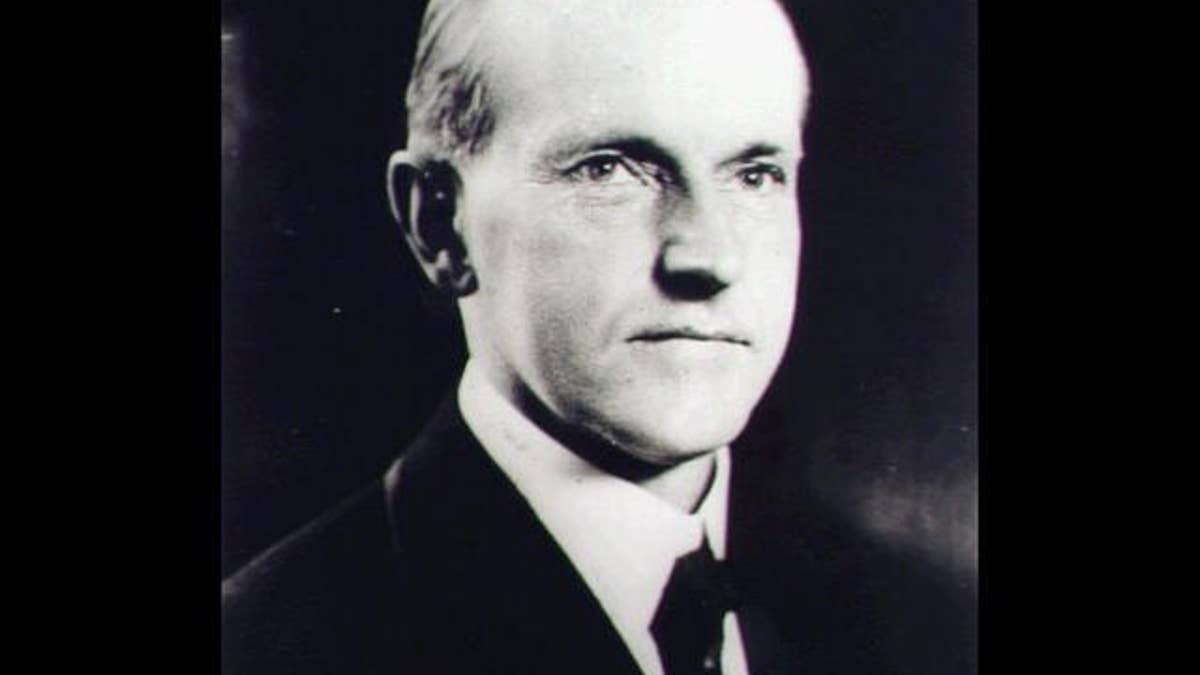
President Calvin Coolidge (AP)
Immigration policy is a hot issue in this year’s presidential election. Are there any cold issues? Probably not, but immigration makes me think of a cool customer, Calvin Coolidge. “Silent Cal” might not get a word in edgewise on today’s debate stage, but he had a thing or two to say about immigration. Besides, he is my favorite U.S. president hands down. Let me tell you a family story.
The tale begins in 1920. In that year my great uncle Seymour Rexite, an eight-year-old, came to the United States from Poland along with his father. Uncle Seymour had made a name for himself in Poland as a singer. He started performing in the synagogue and, by the age of four, he had a reputation as a child prodigy. America offered new opportunities and he became a vaudeville star.
By 1924 Uncle Seymour had saved enough money to bring his mother, three sisters and younger brother to America. His older brother, Jack, had already joined him. The problem was that the Immigration Act of that same year imposed strict immigration quotas on Southern and Eastern Europe, which prevented the family from coming. What could be done?
"My voice was the ticket that would bring my family to America," as Uncle Seymour later wrote. With the help of a friendly Congressman he performed for political leaders in the U.S. Capitol. They arranged for him to sing for President Coolidge in the White House, where he was billed as “The Wonder-Boy.”
It might have been a daunting prospect. Coolidge was a champion of immigration restriction. He signed the Immigration Act into law on the White House South Lawn on May 24, 1924. “America must remain American,” Coolidge commented at the time. But just who was and who wasn’t American? Surely family reunion was an American principle.
That, at least, is what my great uncles concluded. Uncle Jack wrote a special song for his brother Seymour to sing in the White House, “Bring Me My Mother from the Other Side.” And Coolidge did! He said that he found Uncle Seymour’s story moving. Besides, it was an election year. On Coolidge’s instructions, the rest of the family received permission to emigrate. And so my grandmother came to America. Shortly afterwards she married my grandfather.
The anti-immigration movement of the 1920s sprang from several different sources. Some wanted to pause and assimilate the many millions who had come to the United States in the previous decades. Some feared the competition from cheap foreign labor. There was, finally, blunt racism directed at such so-called inferior races as Italians, Japanese, and Jews. Chinese had already been barred entry years before.
Coolidge was not a racist, at least not by the standards of the day. In restricting immigration he emphasized assimilation and economics. He vehemently opposed the wholesale exclusion of Japanese immigration under the new law but he signed it anyway. While that is not excusable I’d like to think that Coolidge’s innate decency shines through in his generosity to my ancestors. He certainly made a difference.
In that same year of 1924, about 600 miles away from grandmother’s hometown in Poland, a man sat in a German prison and dictated a book about his politics and plans for the future. The book was Mein Kampf and the author was Adolf Hitler. Released from prison at the end of the year, he eventually imposed a dictatorship on Germany and went on to engulf Europe in war in 1939. By the time the Second World War ended, 20 per cent of Poland’s inhabitants were dead, including most Polish Jews. It’s fair to say that, by admitting her to America, President Coolidge saved my grandmother’s life and so, indirectly, my own life as well. I am deeply grateful.
When I consider today’s immigration debates I always start with my roots, which are in fact very American roots. Almost all of us Americans come from immigrants who arrived sometime in the last few centuries. Immigration built the country and it continues to make it better.
To be sure, immigration law reform is long overdue, as is a check on illegal immigration. Vetting potential arrivals before admission is only prudent. Nor should immigration policy be made without putting front and center the interests of the American people as a whole. Let’s do this without the wholesale restriction of any particular group and without rounding up and deporting 11 million illegal immigrants. And let’s certainly not stop immigration altogether.
Because immigration is not about them – it’s about us.
